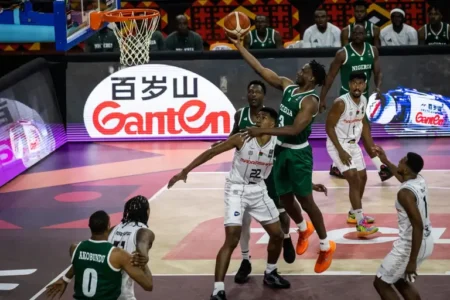By Koyejo Bajomo

Back in 1996, when the the Nigerian Communications Commission (NCC) licensed 38 internet service providers to sell Internet services in Nigeria, many ICT experts expressed the view that the development would lead to the end of traditional television as a medium of influence. I do not think there is anybody in the modern age with a doubt that the internet is a powerful medium of communication.
The belief that Internet will replace traditional television is not peculiar to Nigeria. When the internet launched in America, many in the industry thought that television viewing, as we still know it here, had reached its end.
Locally, fears for traditional television heightened in January 2016, when Netflix announced its global expansion to 130 additional countries, including Nigeria.
What followed was huge excitement in the country. This was mostly on account of the pricing, which many consumers assumed was way lower than for pay television. The claim on the street was that traditional television was on its last leg.
A little over a month later, the excitement had drained. Netflix’s basic plan, which gives the subscriber all the content, costs $7.99 (N2,916.35). The next tier, standard plan, costs $9.99 (N3,646.35), while the premium plan, which comes with improved audio-visual quality costs $11.99 (N4,376.35) monthly.
READ: UBA sustains strong performance with growing contribution, market share across Africa
Compared with a satellite television package, Netflix, on the surface, is a bargain heaven.
The lowest bouquet on MultiChoice’s DStv (Access) platform, for example, costs N1,900 Naira ($5.21) monthly. DStv premium bouquet, which provides access to all the channels, costs N14, 700 ($40.27).
This implies that the higher a subscriber pays, the wider the access to premium content. It is the same with all the country’s pay television companies. A major allure of Netflix and other on-demand services is that even the lowest plan offers access to all its content.
That, however, is as good as it gets. It took Nigerians a very short time to realise that there are associated costs and challenges. Payment to Netflix, as they would find out, was only for content and access. It does not cover Internet services, which are not exactly cheap.
9Mobile’s videopak, which costs N400 for two hours of unlimited streaming at four hours of video viewing daily, will cost N24,000.
The cost is some way lower than the DStv premium bouquet at N14,700. Airtel’s unlimited video streaming comes slightly cheaper at N180 per hour. At N720 for four hours of viewing, the subscriber would incur a bill of N21,600 in addition to the cost of access.
For now, there are no hints that cheaper data plans are coming soon. Next is the challenge of internet capacity, which we all know is anything but reliable. What this implies is that payment for data offers no guarantee that you will watch your favourite content.
Nigeria’s Internet penetration is estimated to be at 50 per cent, a development that excludes half of the population, especially in rural areas, from whatever benefits Internet-based on-demand services provide. With satellite television, a clear sky is the basic requirement.
The truth is that television has become even more important because it is the destination for big-ticket, big-event, heart-of-the-nation programming. This is unlikely to change any time soon.
MultiChoice-owned SuperSport channels are the go-to platform for live sports, especially matches of the prestigious European football leagues. No on-demand service offers that yet.
Hard to see Nigerians thinking an on-demand service is a substitute for the joys of the English Premier League or Spanish La Liga, for example. Matches of the 2018 World Cup will not be watched live on any on-demand service.
The prediction that it would kill off the television networks has proved to be unfounded. What has happened is that both services have co-existed in Nigeria, with traditional television still way ahead in terms of audience.
While reports indicate that more people are watching television via the internet in developed countries, where internet capacity and other infrastructure are top-notch, traditional television is still a long way from the predicted demise.
In It is hard to see the demise happening in Nigeria any time soon, given that television viewing is more or less a family thing or with our attachment to things we are used to.
The death of radio was predicted was predicted when music streaming platforms like Spotify arrived on the scene. I am yet to see the signs of a grim future for radio in Nigeria, just as I do not see it for traditional television in the country vis-à-vis the Internet.
The Internet is here and always will be, but it will not replace traditional television any time soon. Pay television providers like MultiChoice will for a long time remain insulated from the presumed threat of the Internet.
Bajomo writes from Badagry









